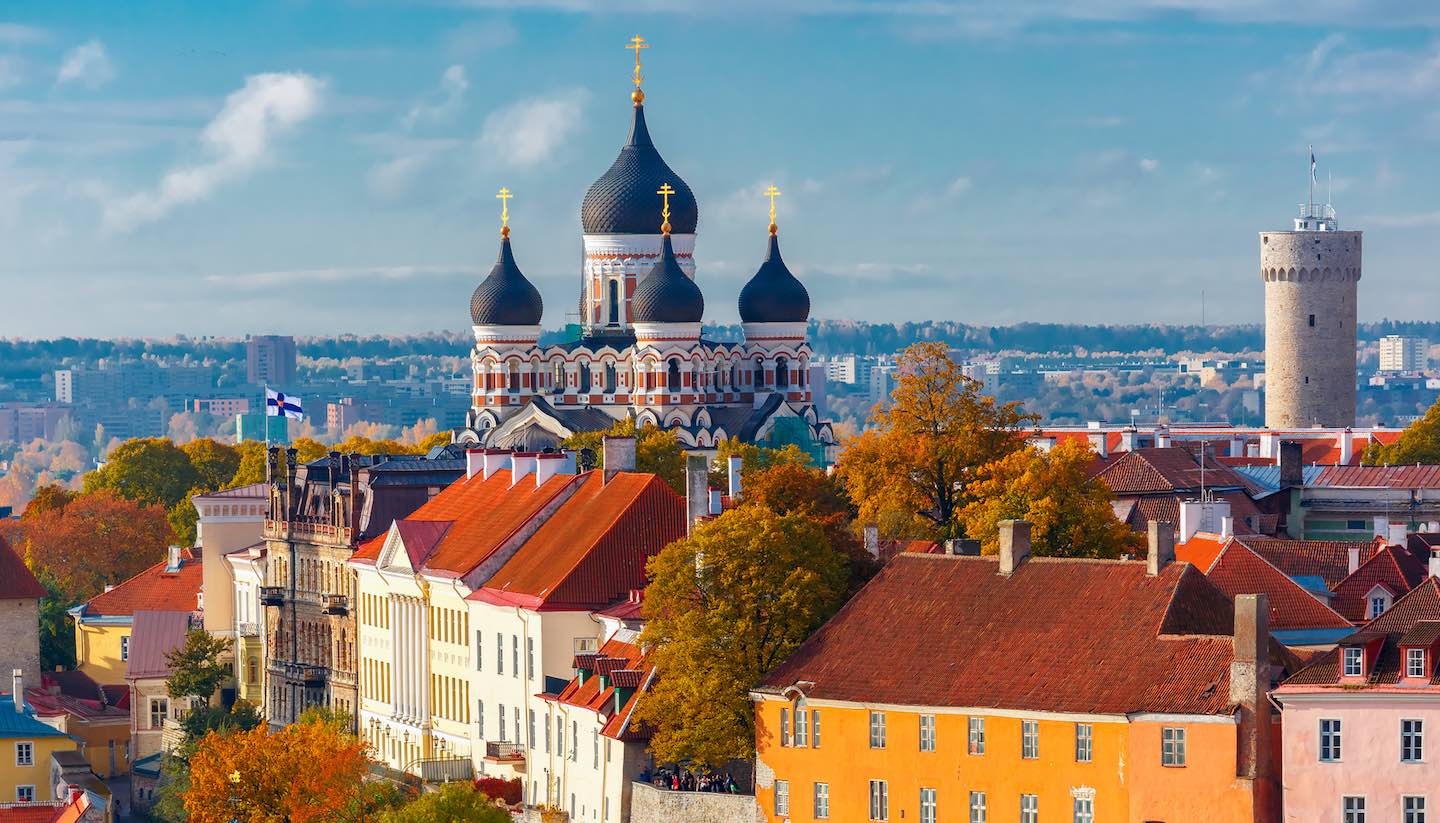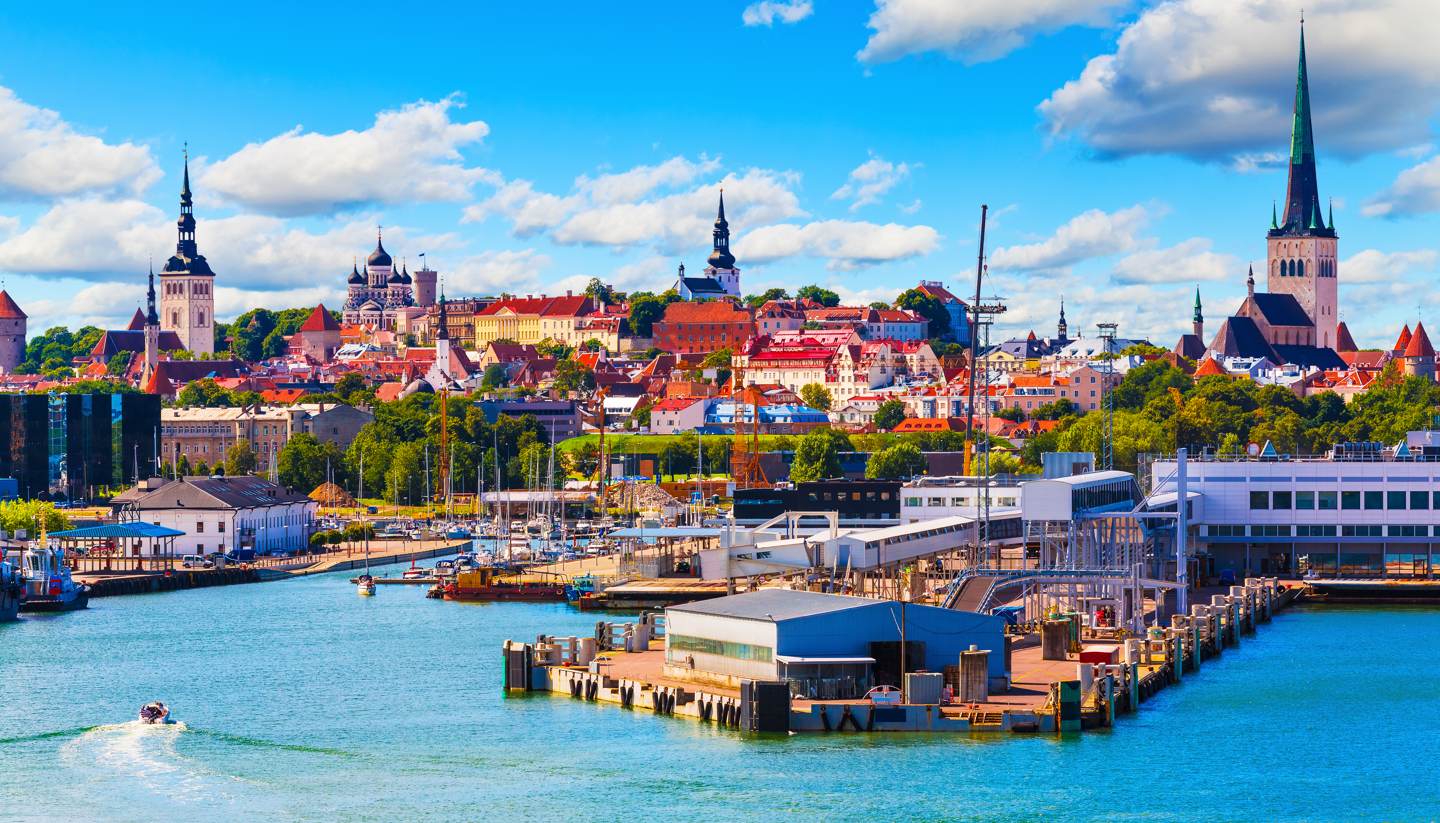Money and duty free for Estonia
Currency and Money
Currency information
Euro (EUR; symbol €) = 100 cents. Notes are in denominations of €500, 200, 100, 50, 20, 10 and 5. Coins are in denominations of €2 and 1, and 50, 20, 10, 5, 2 and 1 cents.
Credit cards
Credit cards are widely accepted throughout Estonia, particularly in cities and tourist areas, with Visa and Mastercard being the most commonly used. Contactless payments are also popular.
ATM
ATMs are widely available across the country, including in smaller towns, and they generally accept international cards.
Banking hours
Mon-Fri 09:00 to 18:00.
Currency restrictions
There are no restrictions on the import or export of local or foreign currency within the EU, but amounts exceeding €10,000 (or its equivalent) must be declared when entering or leaving the EU.
Estonia duty free
Overview
Estonia's duty-free allowance for travellers arriving from within the EU:
If you are over 17 years old, you can transport goods freely between EU countries, provided they are for personal use and not for resale. Taxes must already have been paid on these goods in the country of purchase. If you exceed the following guideline amounts, customs officials may question you to ensure the goods are for personal use:
• 800 cigarettes or 400 cigarillos or 200 cigars or 1kg of tobacco.
• 90L of still wine (of which a maximum of 60L can be sparkling wine).
• 110L of beer.
• 10L of spirits over 22% alcohol by volume or 20L of fortified wine or other beverages up to 22%.
• Travellers under 17 years old may not bring in tobacco or alcohol products, and rules may vary slightly between EU countries.
Estonia's duty-free allowance for travellers arriving from outside the EU:
If you are arriving from a non-EU country, the following goods may be imported into Estonia by travellers over 17 years of age without incurring customs duty:
• 200 cigarettes or 100 cigarillos or 50 cigars or 250g of tobacco. You may combine these tobacco products provided the total limit is not exceeded.
• 1L of spirits over 22% alcohol by volume or 2L of alcoholic beverages less than 22% alcohol by volume.
• 4L of wine.
• 16L of beer.
• Other goods up to the value of €430 for air/ sea passengers (reduced to €150 for travellers under 15).
Banned Imports
Prohibited items include meat and dairy products from non-EU countries, endangered species and their products (such as ivory, certain leathers, and specific plants), and illicit drugs.
Restricted items include plants, plant products, weapons and ammunition, and valuable cultural items.
The European Union has imposed sanctions on various goods imported from the Russian Federation, including diamonds, gold, jewellery, cigarettes, cosmetics, seafood (such as caviar), spirits (like vodka), shoes, clothing, and smartwatches. However, it is important to note that the specifics of these sanctions can evolve, so travellers should consult the European Commission's communications for the most current and detailed information.
This list is not exhaustive. Travellers should consult the official customs website or contact the embassy or consulate near you for the most up-to-date information.
Banned Exports
Prohibited exports include endangered species and their products (such as ivory, certain leathers, and specific plants), cultural artefacts of historical value without permission, and narcotic or psychotropic substances. Firearms, ammunition, and military equipment also require export authorisation.
This list is not exhaustive. Travellers should consult the Estonian Tax and Customs Board or contact the nearest embassy or consulate for the most up-to-date information.


